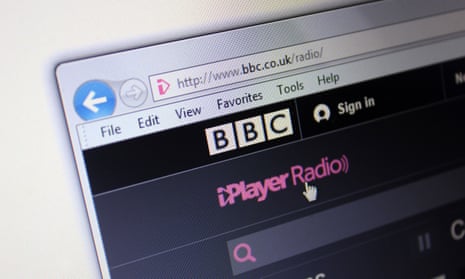The BBC has been accused of “ignoring its audience” over the decision to turn off its iPlayer radio app and replace it with the BBC Sounds app, which only works on newer operating systems.
The broadcaster launched the app – intended as a digital home for all its audio content – last November in an attempt to attract younger listeners, but the software has been dogged with complaints.
The app only works on recent operating systems including Apple’s iOS 11, Android 5 or Amazon OS 5 or newer, meaning people with older devices are not be able to access the service.
The switch off of the app’s predecessor, iPlayer radio, began this week, with users receiving messages encouraging them to download BBC Sounds instead. Users will lose downloaded programmes once the old app is gone, and will not be able to transfer them to the new version.
Users of the iPlayer app complained about the switchover on social media.
The BBC iPlayer Radio app is being shut down over the next two weeks, beginning tomorrow. This is is the BBC's worst decision since they commissioned Mrs Brown's Boys. The BBC Sounds app is a shockingly bad replacement, especially for speech radio content.
— Peggy Woolley (@peggy_woolley) September 15, 2019
“Going ahead with BBC Sounds, in spite of all the evidence that what we already have is better, is the perfect analogy for Brexit,” wrote another.
Rod Macrae, a former BBC journalist, said he was saddened that the move would leave him and other loyal listeners unable to access the broadcaster’s services.
“As a former reporter on Radio 4’s You & Yours, I am aware of the resentment many people have to any industry’s pressure on consumers to constantly upgrade and replace costly devices despite them functioning perfectly well,” he said.
“The BBC’s decision on the iPlayer radio and Sounds apps will leave hundreds of thousands without access to its services. Sadly, the BBC has sided with the technology industry and ignored its own audience.”
A spokesperson for the consumer group Voice of the Listener and Viewer said: “We share concerns about the ending of the iPlayer radio app. While BBC Sounds has much to offer, the existing iPlayer radio app is important for a significant number of our members. We urge the BBC at least to give more time for the transition.”
Writing in a blogpost earlier this month, James Purnell, the BBC’s radio and education director, said supporting older operating systems did not represent “good value for money for licence fee payers, given the relatively small number of users we have still using those older operating systems”.
“If people’s devices aren’t capable of running a supported operating system, in most cases they will still be able to access BBC Sounds on that same device via a web browser (eg, Safari, Chrome),” he said.
“It is standard practice for updated apps to no longer support older operating systems, this is the case for iPlayer as well as iPlayer Radio, and apps by other companies / organisations.”
The BBC Sounds app and website is designed to appeal to the next generation of listeners attracted not just to radio, but podcasts and streaming services such as Spotify. However, within months of its launch late last year the BBC faced a backlash from listeners asking why it needed to replace the iPlayer radio app.
Anger boiled over when a popular podcast made by the Woman’s Hour presenter Jane Garvey and fellow radio host Fi Glover was made exclusively available on BBC Sounds, in effect forcing listeners to download the new app. The corporation was accused of using its best content to “prop up a shoddy service”.
The BBC Sounds app has received low scores on app-rating sites, being initially criticised for the lack of a sleep-timer function for Android devices, a failure to reliably display track names, the difficulty of sharing content, a limited range of programming and a mediocre search function. The BBC has since added many new features.
At the time of the app’s launch the actor Hugh Bonneville, who played the BBC’s fictional head of values, Ian Fletcher, in the sitcom W1A, tweeted a satirical reply to a query about the purpose of BBC Sounds from the comedian Jenny Eclair.
“It’s a good question, Jenny, and we’re glad you’ve asked it,” Bonneville said. “Part of our More of Less initiative, BBC Sounds is a condensation of BBC Radio and BBC Noise, which in 2020 will be repurposed as BBC Echo – a great big empty hall, probably in Kidderminster.”
Caroline Abrahams, the charity director at Age UK, said: “Technology is constantly changing, and for many people this means that they get the chance to upgrade to the latest ‘best’ version. But for those older people who can’t afford to buy the latest laptop or tablet, find it difficult to keep up to date with changes or who simply prefer to stick with what they know, it can be a real problem and even be a reason why, over time, they stop going online altogether.”
A spokesperson from the BBC said: “As with most apps, BBC Sounds requires people to have a device which runs more modern operating systems. This is the case for iPlayer Radio too which would have stopped supporting the same older systems in the near future if it wasn’t closing. Supporting older systems is expensive and poor value for licence fee payers, given the relatively small number of people still using them. In the majority of cases, people with older systems can still use BBC Sounds on that device via the web.”
